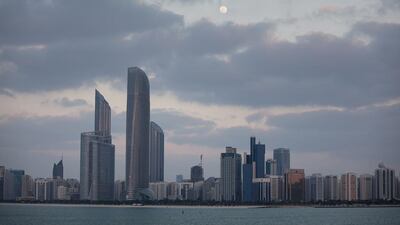The worst is over. This was the message of Ali Majed Al Mansoori, the chairman of the Department of Economic Development and member of the Executive Council, to Bloomberg this month about the state of the UAE’s economy. Citing possible GDP growth of as much as 5 per cent this year, Mr Al Mansoori said that plans are underway to restart several major infrastructure projects in Abu Dhabi including the construction of the Guggenheim museum on Saadiyat Island.
Abu Dhabi cut spending by a fifth in 2015 to cope with the global downturn in oil prices. With a further 17 per cent reduction planned for this year and the stabilisation of oil prices near $50 a barrel, sentiment is improving about the overall health of the economy. Markets, in particular, trade on narratives. Therefore this positive attitude about the direction of the economy will soon start to pay dividends in rising market indices and investment.
The World Bank and the International Monetary Fund (IMF), however, have been more cautious in their economic forecast for the UAE. This week, the World Bank cut its growth forecast by 1.1 percentage points to 2 per cent for this year. Previous forecast put growth projections at 3.4 per cent for 2015. While international bodies have been correct in expressing caution that the pace of cutbacks across the UAE economy could hinder growth, the latest figures should be approached with a pinch of salt. Namely, these figures are considered in advance and don’t fully incorporate recent upticks in oil prices as well as the corresponding winds of positive sentiment that are blowing in Abu Dhabi.
In advocating more cautious fiscal reductions, the IMF noted that Abu Dhabi’s fundamentals were sound. Indeed they are. The test is whether this positivity in the economy will be translated into growth across sectors as opposed to focused growth in infrastructure projects. This year of lower oil prices serves as a stark reminder that it is investments in the knowledge economy will best help prepare us for the future.

